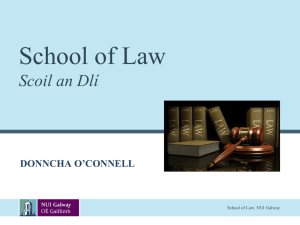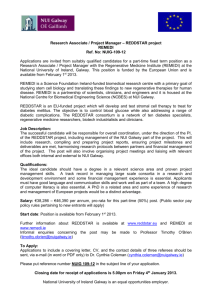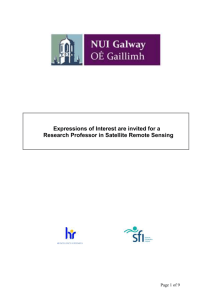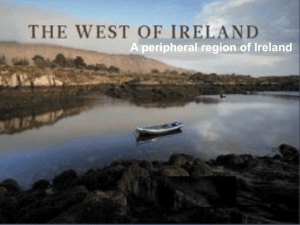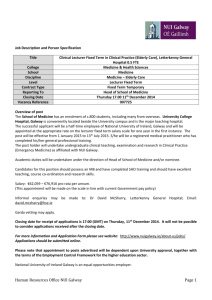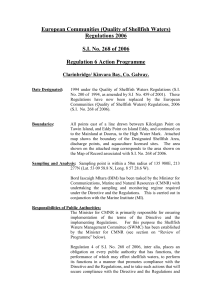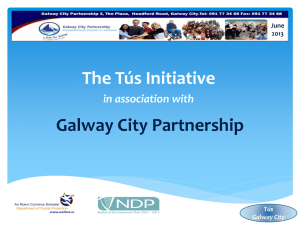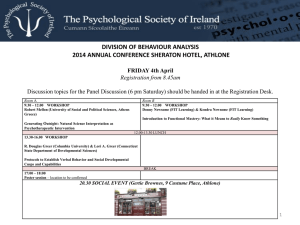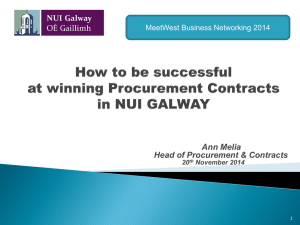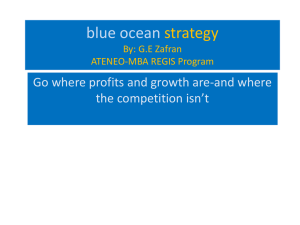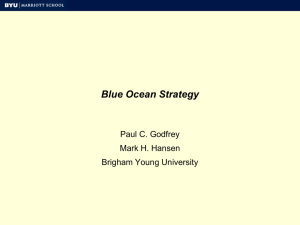Sarah-Jane-Coffey
advertisement
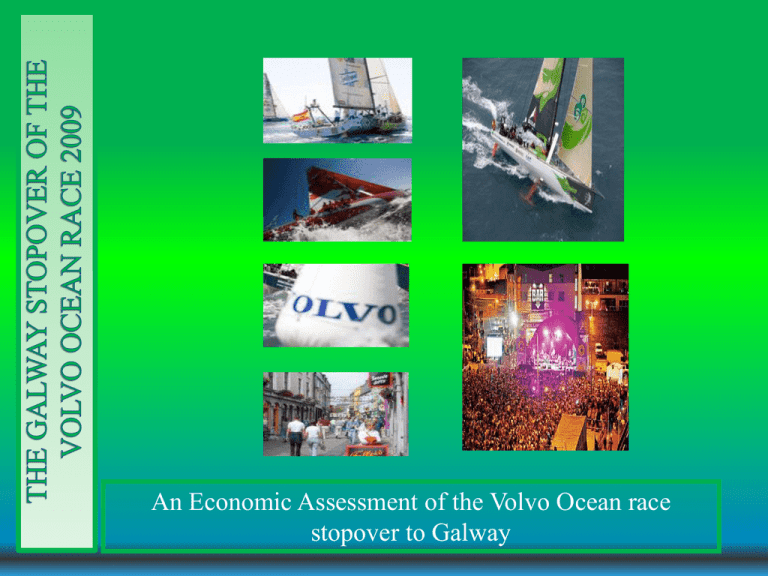
An Economic Assessment of the Volvo Ocean race stopover to Galway Introduction/Background Economic impact assessment of the Volvo Ocean Race Smart Tourism on behalf of Galway Motivation for the Study • TV audience globally of 1.327 billion • Radio listenership globally of 1.1 billion • Discover Ireland: 11,200 media items • Galway: 13,427 media items • 61 newsfeeds from Galway with downloads confirmed by 53 channels in 24 countries • Galway online coverage 1789 references in 46 countries • Galway radio coverage 168 reports from 46 stations in 17 countries • €55.8m economic impact on Galway and Ireland • €36.5m of spending by race spectators from outside the local region • 650,000 spectators at Race Village and Salthill • Over 200,000 bed nights • 99% of international visitors would recommend Galway as a holiday destination • 46,000 domestic visitors • 40,500 international visitors • 269 media attended Galway 5 Objectives 1. To identify the Economic impacts that the stopover in Galway had on the host community 2. To Identify the ‘behind the scene success factors’ for the Galway Stopover of the Volvo Ocean Race 3. To Determine the barriers that occur when hosting such a large sporting event 4. To Analysis the negative economic impacts on the surrounding areas 5. To identify the common ingredients (if any)that have been responsible for the success of the event. Respondents of the Study 13 Different individuals Conduct of the Interviews Semi structured interviews Duration of between 1/2 hours Influence was kept to a minimum to ensure validity Questions that came to mind during interview’s 1.To identify the Economic impacts that the stopover in Galway had on the host community The long term economic impacts worth €55M to the west of Ireland, €45M in direct expenditure and €10M in indirect expenditure in Galway and the west. The event attracted a total of 650,000 spectators . The Legacy Employment The Importance to Tourism 2.To Identify the behind the scene success factors for the Galway Stopover of the Volvo Ocean Race The Change in strategy The people of Galway Accessibility Greeting the race received 3.To Determine the barriers that occur when hosting such a large sporting event. Winter Olympics in Vancouver Predicting the crowd and policing Removal of the Oil Tanks The costs involved Lack of corporate attention Obtaining the License Promoting the destination not the Race 4.To Analysis the negative economic impacts on the surrounding areas Severe impacts on other parts of the region Policing of the in-shore Racing Small gas explosion Traffic restrictions to local businesses and residents. 5.To identify the common ingredients (if any)that have been responsible for the success of the event. The race was embraced by the whole town. The Planning & Development of the entire port area. The reception, the welcome & the weather! The Volunteers The Media & the location Conclusion Recommendations The Stopover in Galway was an amazing success. The researcher had a hard time trying to find any major negative impacts connected to the race. The people of Galway were one of the largest success factors of the Race. The Return of the Volvo Ocean Race in 2012 will be an even bigger and better event. The Volvo Ocean race committee should implement a ‘expect the unexpected ‘plan. Theme could be an idea for 2012 Galway should try an adopt the ‘Share the Wealth approach’ from the beginning. The Race village should be re-developed. The return of the Volvo ocean race to Galway for the Final leg of the round the world race in 2012 The race will return for the final leg of the Race in 2012. Failte Ireland have already allocated €4 M. Will give Ireland a chance to show cases it’s two biggest assets it’s beautiful coast line and friendly people. The IHF have predicted that the stopover will attract up to 40,000 overseas visitors with a injection of up to €80 M in tourism income.
